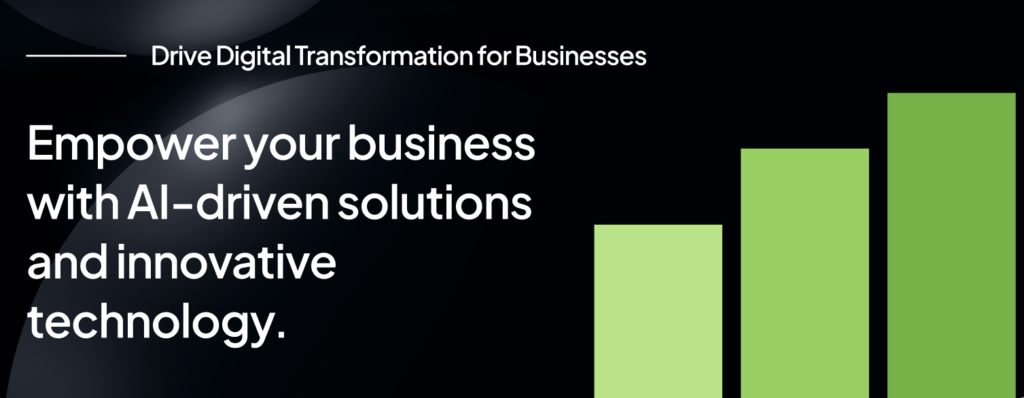AI Consulting Experts
Unlock the Potential of AI for Your Business

Our Services
Digitally Driven Solutions to Empower Your Business
Mobile Applications
We create mobile applications that leverage AI to deliver personalized user experiences, automation, and advanced analytics. Whether for Android or iOS, our apps are designed for performance, security, and seamless integration, helping businesses stay competitive in a mobile-driven world.
Web Applications
We specialize in developing intelligent web applications that enhance business efficiency and user experience. Whether you need a dynamic dashboard, an automated workflow system, or a scalable online platform, we build solutions that integrate AI-driven capabilities to optimize performance and decision-making.
AI Agents
Our AI agents are designed to streamline operations by handling tasks such as customer support, data processing, and workflow automation. These intelligent systems adapt to your business needs, providing real-time insights and automating repetitive processes to improve productivity and customer satisfaction.
Consulting
Our consulting services provide businesses with guidance on AI implementation, helping them understand the potential of artificial intelligence and how it can be applied to their industry. From feasibility assessments to strategic roadmaps, we help organizations harness AI to drive innovation and growth.
AI Innovation & Insights: Transforming Industries with Cutting-Edge Technology
Stay ahead with the latest breakthroughs in AI. Explore how artificial intelligence is shaping the future of business and technology.
-

Revolutionizing Data Visualization: How AI Agents Transform Tableau Analytics
Revolutionizing Data Visualization: How AI Agents Transform Tableau Analytics In the ever-evolving landscape of data analytics, the demand for intuitive and effective data visualization tools…
-

MediaTek Dimensity 9400 Chipset Revolutionizes AI for Tri-Fold Phones
MediaTek Dimensity 9400 Chipset Revolutionizes AI for Tri-Fold Phones The world of smartphones is on the brink of a revolutionary change with the introduction of…
-

SAP Unveils Enhanced Joule Copilot: New AI Collaboration Tools Revolutionize Enterprise
SAP Unveils Enhanced Joule Copilot: New AI Collaboration Tools Revolutionize Enterprise In a world rapidly evolving with technological advancements, SAP has taken a significant leap…
Contact Us
We are a small, passionate team specializing in AI consultation, application development, and AI-integrated solutions, including AI agents. Having already started our journey, we are dedicated to helping businesses leverage artificial intelligence to enhance efficiency, automate processes, and drive digital transformation.
